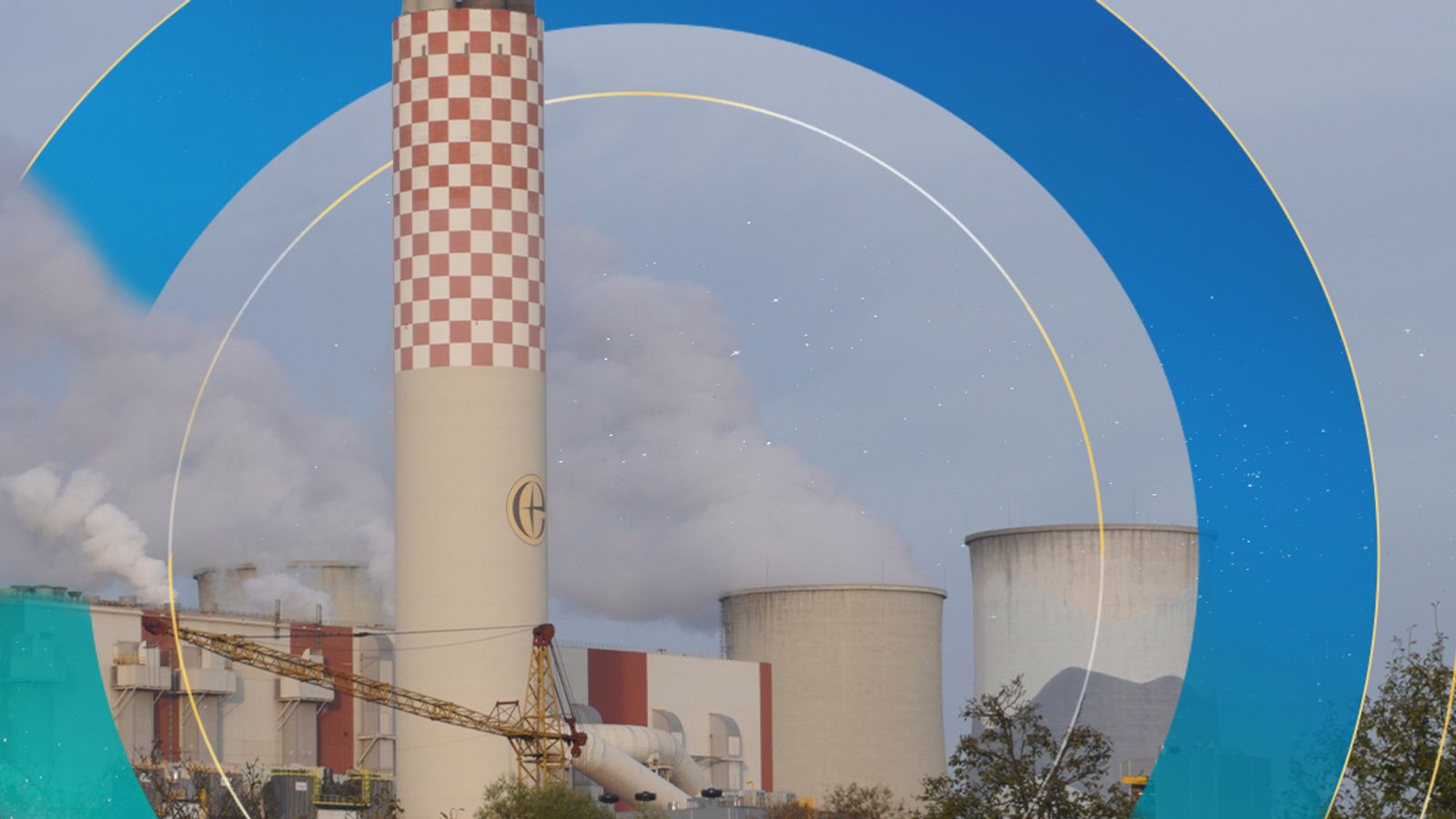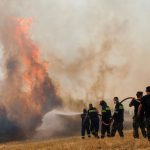The last piece of coal burned in the world should come from Australia, according to members of the country’s coal communities.
In New South Wales’s Hunter Valley, an estimated 13,000-strong workforce dig and mine the land.
Here, Australians are building fortunes and futures from the black gold they pull from the earth.
“Coal is so important to this area and to this community,” says Dave Layzell, a member of the New South Wales parliament for Upper Hunter.
“We believe that we’ve got another 30 years left of this industry to continue selling coal all around the world.
“The last piece of coal that’s burned in the world should be Hunter Valley black coal.”
Climate change: Australia expects to continue to sell coal ‘for decades into the future’
Australia shark attack: Wife pays tribute to ‘wonderful’ Briton killed off Port Beach near Perth
Australia: Search called off for swimmer attacked by shark at Port Beach
The COP26 call to phase out coal power has gone unanswered in Australia.
The country did not add its name to the list of 190 countries and organisations which pledged to move away from the fossil fuel.
It’s a decision welcomed in mining communities where they say cutting coal would be catastrophic.
“We would see social devastation in terms of jobs lost, businesses going bankrupt and people moving away from this area,” Mr Layzell tells me.
The Hunter Valley mining communities aren’t just built on coal, it’s intertwined in the very fabric of society.
People have given their lives to the mines and the mines have given livelihoods to tens of thousands of people.
Mine workers can earn some of the highest full-time weekly salaries in the country.
An average weekly wage can hit $2,674 (£1,467), according to the Australian Bureau of Statistics.
Miner Stuart Bonds believes pressure to move away from coal power is premature.
“What these guys are attempting to do is put a dead man’s switch in on a certain date and say that’s it.
“What happens if you don’t meet that? Are we going to do rolling blackouts?” he asks.
“I’m not saying we should do nothing. There are things that we can do to reduce the carbon output.
“But I don’t think that putting a switch in which is going to act like a nuclear bomb on our economies is a good idea.”
But even in coal country, fears over pollution and climate change have started causing divisions.
Farmer Margot White says dust from the local mine covers her home and endangers her health.
“It makes me angry, it makes me worried. I mean, that’s in my lungs too,” she says, wiping off a thick layer of black grime from her windowsill.
Her family once made money from mining but for Australia to have a future, she thinks coal has to be left in the past.
Currently 54% of the country’s energy comes from coal-fired power stations, according to official figures.
In recent years, the national government has increased solar and wind power.
It’s pledged net zero emissions by 2050 and announced $2.47bn (£1.36bn) to lock in lower energy prices, develop new technology and boost the economy.
But it’s also signed off new mines.
“We’re about to dig up more dirt and dig up more tons of coal for many more years… we just can’t be doing it anymore for the climate,” Margot says.
“I think the bell has sounded and it is time for the coal industry to start transitioning out of it.”
This isn’t just a domestic battle.
Australia is the world’s second biggest exporter of coal, a global dealer of the planet’s filthiest fossil fuel.
Please use Chrome browser for a more accessible video player
The country is now facing its most important power struggle – if it bows to pressure and cuts coal, what happens to the communities that rely on it? If it doesn’t and emissions continue to rise, what happens to the rest of the world?
The balance of energy, economics and the environment struck in Australia will impact all our lives.
“Is this a curtain call for coal?” I ask miner Stuart Bonds.
“No I don’t believe it is. I mean have a look in the backdrop of COP, you’ve got record high coal demand all around the world,” he replies.
“If there was a last stand to be made on coal it should be here in this country.”
Subscribe to ClimateCast on Spotify, Apple Podcasts, or Spreaker
For full coverage of COP26, watch Climate Live on Sky channel 525.
Follow live coverage on web and app with our dedicated live blog.
Get all the latest stories, special reports and in-depth analysis at skynews.com/cop26






















